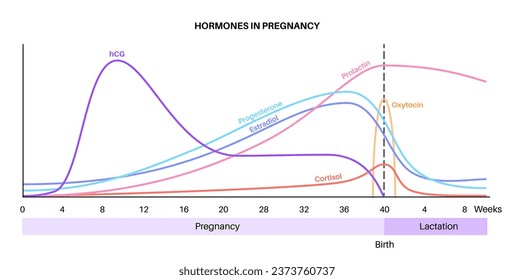Exploring the Link Between Stress and Miscarriage: Fact or Fiction?

Stress is a natural part of life, but during pregnancy, its effects become a heightened concern. Many wonder if stress can cause miscarriage, leading to self-blame and confusion. Let’s delve deeply into this topic to uncover the truth and provide evidence-based insights.
The Fear Surrounding Stress and Miscarriage
It’s common to hear anecdotes linking stress to miscarriage. This belief often adds emotional strain for those experiencing loss, as they may feel responsible. However, while stress can influence pregnancy in certain ways, it is rarely the direct cause of miscarriage.
Scientific Understanding of Stress and Pregnancy Loss
- Mild to Moderate Stress
Everyday stress—like meeting deadlines or dealing with household chores—is generally not harmful to pregnancy. Research suggests that such stress does not significantly increase the risk of miscarriage. - Severe or Chronic Stress
Prolonged exposure to intense stress, such as trauma, grief, or financial instability, may have indirect effects on pregnancy. Chronic stress can trigger physiological changes, including hormonal imbalances, reduced blood flow to the uterus, and immune system alterations, potentially influencing pregnancy outcomes. - Primary Causes of Miscarriage
The majority of miscarriages result from chromosomal abnormalities or structural and hormonal issues unrelated to emotional stress. These medical factors are far more influential than emotional stressors.
How Stress Affects the Body During Pregnancy
Stress activates the body’s “fight or flight” response, releasing cortisol and adrenaline. Prolonged activation can:
- Alter Blood Flow: Less blood may reach the uterus, impacting fetal development.
- Affect Immune Function: Chronic stress might impair the immune system’s ability to protect the pregnancy.
- Influence Hormones: Imbalances in progesterone or other pregnancy hormones could indirectly affect pregnancy stability.
For insights into how hormonal changes affect your appetite and emotional state, read this article on food aversions during pregnancy.
Debunking Myths About Stress and Pregnancy
- Myth: A single stressful event can cause a miscarriage.
Truth: Short-term stress, like arguing or a stressful day at work, is unlikely to have any impact. - Myth: You must remain completely calm during pregnancy to avoid risk.
Truth: Complete calm is unrealistic, and moderate stress is a natural part of life. Your body is resilient and can handle typical stressors.
Ways to Manage Stress During Pregnancy
- Mindfulness and Relaxation
Practices like yoga, meditation, and deep breathing can help regulate cortisol levels. Consider joining prenatal yoga classes for added support. - Open Communication
Share your worries with a partner, friend, or healthcare provider. Talking can reduce feelings of isolation and improve mental well-being. - Professional Help
If stress feels overwhelming, consult a therapist or counselor specializing in maternal mental health. - Physical Activity
Light exercise, such as walking, boosts endorphins, helping to reduce anxiety and improve circulation. - Healthy Habits
Focus on balanced meals, adequate hydration, and sufficient sleep. For practical tips to navigate the early stages of pregnancy, explore this guide on first-trimester survival.
What To Do If You’re Feeling Overwhelmed
It’s crucial to recognize when stress becomes overwhelming. Symptoms like persistent sadness, trouble concentrating, or panic attacks warrant immediate attention from a healthcare provider. Pregnancy is not just about physical health; emotional well-being is equally important.
Conclusion: The Verdict on Stress and Miscarriage
While extreme and chronic stress can pose risks, most pregnancies are resilient to everyday stressors. The primary causes of miscarriage are usually medical, not emotional. If you’re worried about the effects of stress, focus on proactive management strategies and seek support when needed. By addressing stress, you’re not only protecting your pregnancy but also fostering a healthier emotional environment for yourself and your growing family.
Understanding the realities of stress and miscarriage helps alleviate unnecessary guilt and empowers expectant parents to focus on what truly matters: self-care and informed decision-making.






